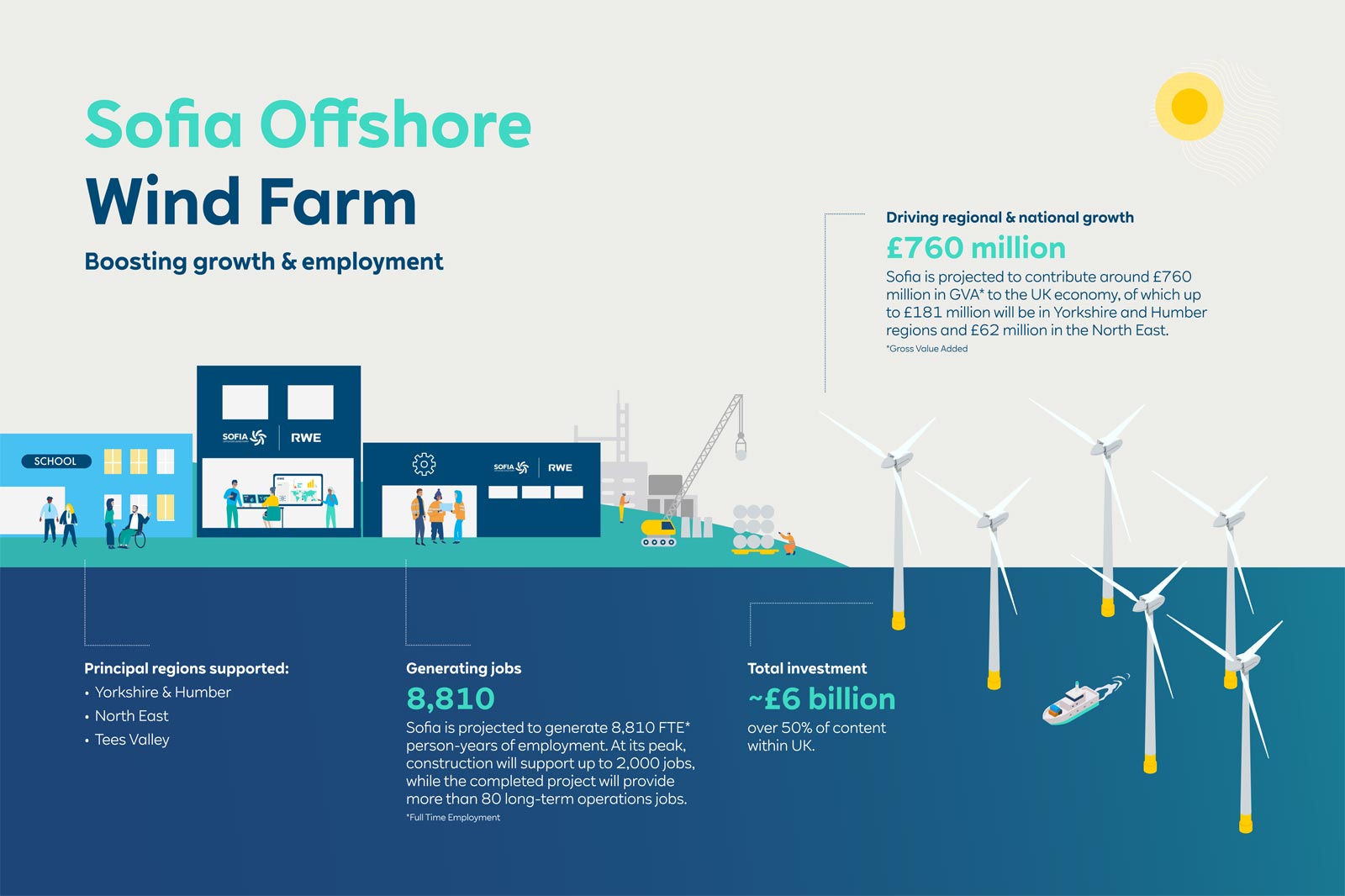RWE and Vestas agree turbine supply agreement for Vanguard West offshore wind farm
20.02.2026

An important new study commissioned by RWE on the socio-economic impacts of its flagship Sofia offshore wind farm project, spotlights the significant value it is creating for communities across the UK. Located 195 kilometers off the North East coast of England on Dogger Bank, the 1.4 gigawatts (GW) Sofia offshore wind farm project is poised to become one of the UK’s largest operational renewable energy assets.
The study, conducted by Wavehill Social and Economic Research, shows the positive contributions the project has already made to local and national economies, as well as its beneficial support for communities and sustainability initiatives.
Tom Glover, UK Country Chair, RWE: "Offshore wind is not just about delivering clean power—it’s about creating a ripple effect of positive change. The Sofia Offshore Wind Farm project demonstrates how renewable energy can boost economic growth, support the supply chain, and bring lasting benefits to local communities. By investing in skills, infrastructure, and community initiatives, we are ensuring that offshore wind delivers for the UK both today and in the future.”
The Sofia offshore wind project is a cornerstone of the UK’s transition to renewable energy, and will be capable of generating power equivalent to the needs of 1.2 million typical households, while fostering community and economic growth across the region and the wider UK.
The report draws on investments made during the development and construction phases or already committed, and considers their impacts on a local and national level. It estimates that during development and construction, Sofia will generate around £760 million in Gross Value Added (GVA) to the UK economy, supporting 8,810 full-time equivalent (FTE) person-years of employment, of which 1,600 FTE person-years for Yorkshire and Humber and 490 for the North East. This equates to up to 2,000 direct and indirect jobs during peak construction, and over 80 long term, high skilled and mostly locally-based roles to support the project during its more than 25 years operations.
Project investments are also creating a lasting legacy, by helping to establish a pool of skills and specialisms that would serve the broader industry in the future, through an extensive outreach and engagement program. So far, the project has reached over 12,700 students from primary schools to universities, to discuss STEM career pathways. Its Champions for Wind program has equipped local school-teachers with knowledge of jobs and skills required to be successful in the industry, that can be passed on to future student generations. RWE has also sponsored the Energy Central Learning Hub in Blythe in support of its educational outreach work, and has a successful apprenticeship program to train future wind turbine technicians and engineers.
Locally, the study considers investment in community initiatives which have a positive impact on the region’s economy. The Sofia Construction Community Fund has already supported 23 local charities and projects that address social isolation, poverty, and sustainability. Other initiatives range from coastal clean-ups and community centre renovations to mental health support programs. Recently, RWE has supported the Whitby Lobster Hatchery which will significantly increase stocks of lobster to improve the sustainability of the region’s marine industry and ecosystem.
RWE already operates 10 offshore wind farms across the UK. Including the three Norfolk offshore wind projects from Vattenfall, RWE is developing nine offshore wind projects in the UK, representing a combined potential installed capacity of around 10.5 GW, with RWE’s pro rata share amounting to 7.5 GW. RWE’s unparalleled track record of more than 20 years in offshore wind has resulted in 19 offshore wind farms in operation.
Graphics and image material for media use is available at the RWE media centre (Credit: RWE).